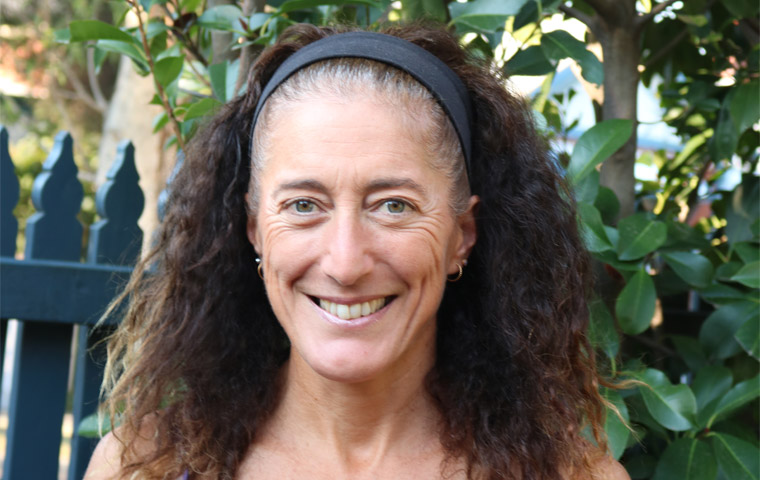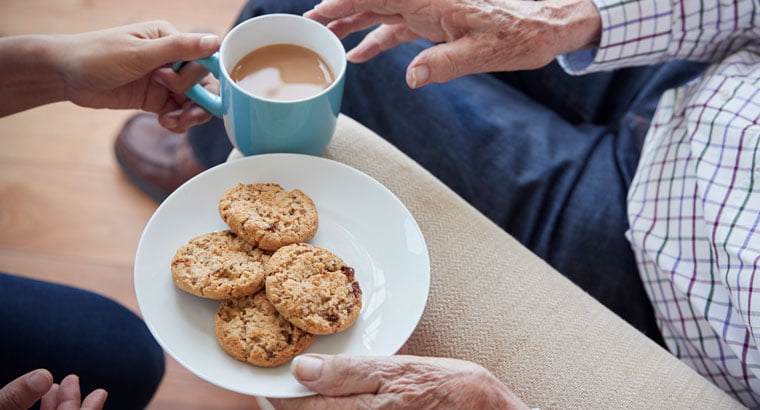Representatives from the Dietitians Association of Australia last month appeared before the Royal Commission into Aged Care Quality and Safety for a hearing on improving nutrition in residential aged care facilities (RACFs).
The royal commission previously provided evidence that 22–50% of those residing at RACFs are malnourished.
Dr Sandra Iuliano from the Department of Endocrinology at Austin Health and a Senior Research Fellow at the University of Melbourne presented her research at the July hearing. She believes collaborative action needs to be taken to address an ‘inappropriate approach’ to feeding RACF residents – and not just from a financial perspective.
‘We’re really having to unpack nutrition in aged care to look at how we can best facilitate their eating and enjoyment of food, because that will inadvertently create better nutrition,’ Dr Iuliano told newsGP.
‘[And] this is through collaboration: the GPs to look at what’s happening with their overall health and how that’s impacting on their ability to eat; the speech pathologist to keep a check on food textures, because that has an impact their swallowing; and the dentist looking at how their teeth are, because they may not be eating due to tooth pain.
‘GPs [also] have the knowledge of the medications the residents are on, and the potential influence of those on their food intake.’
Once this collaboration is in place, Dr Iuliano said the next step is to assess what the resident needs in terms of healthcare and food intake, as well as what they actually like to eat, and involve them with the menu development to assist the nutritionist and dietitian.
‘There’s no point in telling someone what they should eat. We should find out what they like to eat and then create the menu that way,’ she said.
‘We know what they want, so we can create the foods that they actually will eat. Because if they don’t like the food then they’re not going to eat it.’
Data from Dr Iuliano’s research demonstrates that a high number of RACF residents – 68% – are malnourished or at risk of malnourishment, with inadequate protein a key factor.
Looking at recommended average daily food servings of protein (meat and dairy) for each RACF resident, Dr Iuliano assessed that although these have generally remained the same for males and females over the last decade, and RACF residents were getting adequate servings 10 years ago, the cost of food has gone up.
But the main sources of protein are now being provided in smaller quantities, despite evidence that RACFs are spending less on food.
‘We can see a correlation between high-protein foods being served less [in RACFs], and the cost put towards food going down. Related to that is the number of “discretionary foods” like cakes and biscuits, which are increasing,’ Dr Iuliano said.
‘So we are not even matching what would be the normal amount of food expenditure for an average older person in Australia.
‘What needs to happen, and we have the data to do this, is to model food they need to eat in order to get their nutritional needs met.
‘The food expenditure should go up with the cost of living.’
 Dr Sandra Iuliano’s research found that 68% of residents across 21 Melbourne RACFs were malnourished or at risk of malnutrition.
Dr Sandra Iuliano’s research found that 68% of residents across 21 Melbourne RACFs were malnourished or at risk of malnutrition.
Assessing adequate food intake and expenditure is part of prevention, which, according to Dr Iuliano, is vital to stop ‘perpetuating the risk of malnutrition’. She wants to see improved processes of recognising when a resident is malnourished or at risk of malnourishment.
‘Currently, what we see is that there is no prevention in place, so we react to malnutrition,’ she said.
‘[An RACF resident] loses weight, which is the only benchmark, then some kind of intervention is put in to place.
‘But we know that once they’re malnourished it’s very difficult to get them back to nutritional status … recognising if they lose weight it is difficult to put it back on. The key thing is to prevent it.’
Recognising the value of nutrition is also important to prevent other health issues.
‘The relationship between feeding [RACF residents] better and more nutritionally means we will have less of the other problems,’ Dr Iuliano said. ‘Including a higher risk of falls, pressure sores, mental health issues, poor dental health, resulting in more hospital visits … which end up costing more because they are so malnourished.
‘It’s a false sense of security.’
Eating a nourishing meal each day not only has a positive impact on a person’s physical health, but their mental health, particularly for older people, Dr Iuliano believes.
‘In the aged care setting, food and meals are so important because for some of the residents, every ounce of their independence has been removed and the only thing they may be able to now control is what they eat, when they eat, and how they eat, so food becomes very important to them,’ she said.
‘Shovelling food into someone’s mouth [may be] giving them nourishment, but it’s not giving them the pleasure or dignity of eating.
‘It’s not about adding years to life; it’s about adding quality to the years they have.’
[“source=racgp”]

